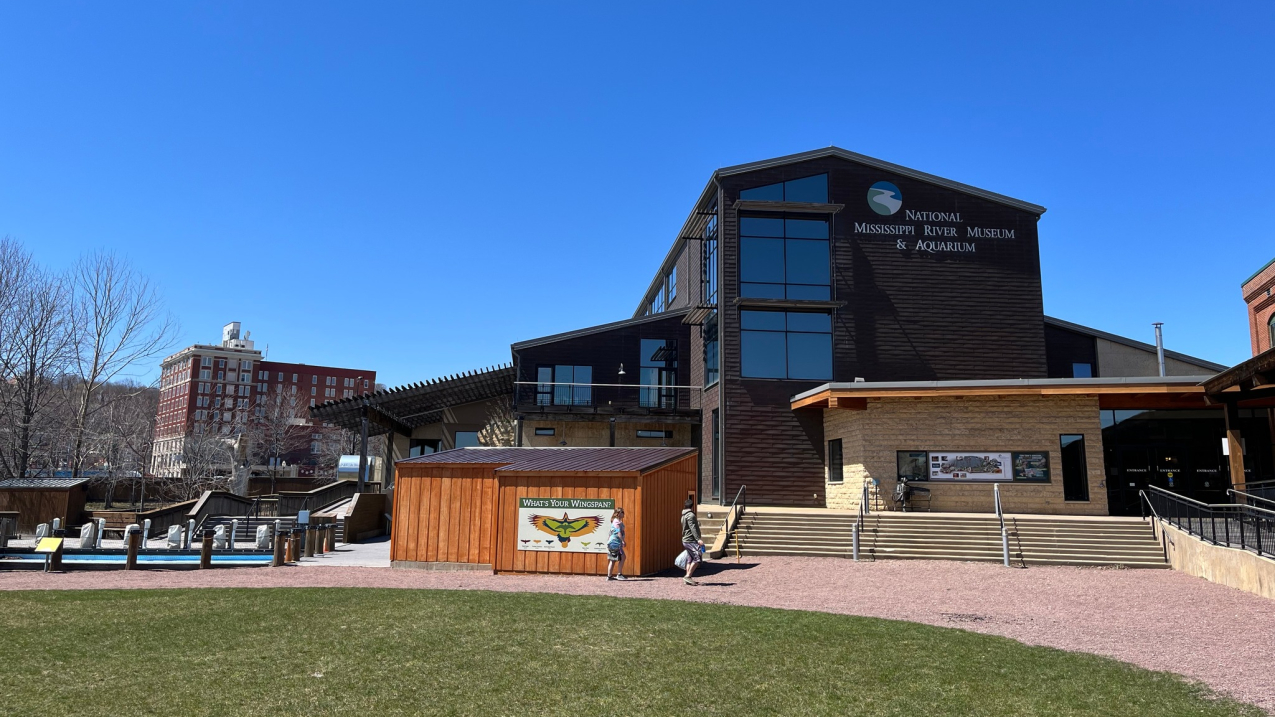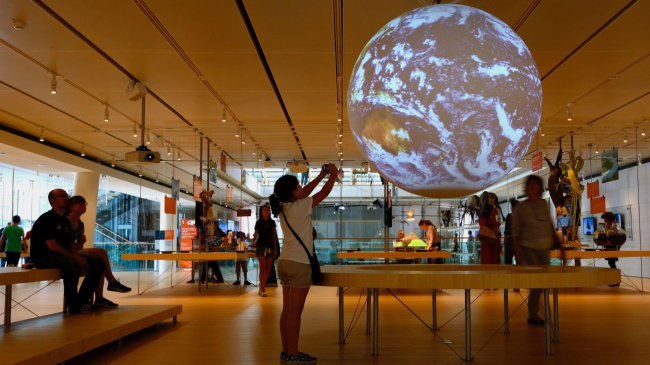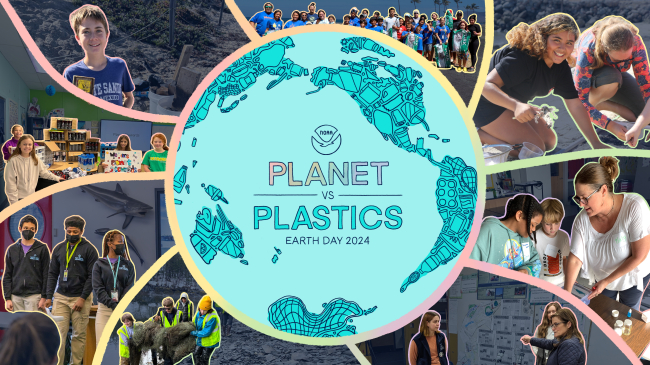Nestled along the Iowa-Illinois border near the second longest river in the country, the mission of National Mississippi River Museum & Aquarium offsite link is to inspire stewardship for aquatic environments and creatures where history and rivers come alive. This institution is one of 25 aquariums and marine science education centers across North America that make up the Coastal Ecosystem Learning Centers (CELC) network. Together this network engages the public in protecting coast and marine ecosystems and work on shared priorities, such as youth engagement.

The National Mississippi River Museum & Aquarium in Dubuque, Iowa. (Image credit: National Mississippi River Museum & Aquarium)
The network worked with a team of high school aquarium volunteers to plan the 2021 CELC Virtual Youth Summit, which brought together more than 60 aquarium high school volunteers from the CELC network to hear from speakers on how to make a difference for the ocean through art, writing, advocacy, and more.
A group from National Mississippi River Museum & Aquarium attended the summit and received funding from NOAA and the North American Association for Environmental Education offsite link to take what they learned to design and lead an action project in their local community. The team led a project to reach local businesses and raise awareness on environmental issues impacting their community. We asked the teens to reflect on their project and what they learned through their experiences. Read what they shared below!
Tell us the story of your project!
We started as a collective of teens who shared a will to help the environment and decided to urge the community to help as well. We reached out to the community through our local Chamber of Commerce and were able to connect with a handful of local businesses.
For our project, we decided to foster environmental consciousness within Hotel Julien Dubuque, one of the most popular and historic hotels in Iowa, by demonstrating what cost effective products/practices they can use. We met with members of the hotel team and assembled a custom tool kit containing a collection of environmentally friendly cleaning supplies, kitchen utilities, housekeeping items, and a resource guide for the hotel. We also asked the hotel to continue collaborating with us on this project as we continued to build on it in the future.
What went well in the project, and what did not go according to plan?
Working with teammates was a breeze. Everyone was eager to contribute to the project, bringing their own talent to the table. Initial attempts to contact local businesses was a little slow due to scheduling and lack of access to contact information. Eventually we were able to gauge enough interest through the local Chamber of Commerce to move the project forward. At first our project was too broad with too many businesses to contact and too loose of a timeline. Choosing to focus on one large business in our community helped us significantly to focus on our goals. In the future, we will plan to develop a more detailed timeline earlier on, which will help us to avoid tight deadlines near the end of the project.
What impact did your project have?
Through our project, we were able to provide resources to Hotel Julien Dubuque to practice using more sustainable products that will not only lower their environmental footprint, but serve as a model to all of Dubuque’s local businesses to take up a similar practice. Our team received a letter from the hotel’s team, which thanked us for our work and collaborative approach to help them practice more sustainability.
How did the project impact you?
Our team wanted to share our individual reflections on this question:
- “Working on this project has helped drain me of some of the cynicism surrounding how our generation seems apathetic towards the environmental crisis. Seeing other teenagers care and work to make things better gives me hope.”
- “I learned a lot more about what goes into sustainability specifically in business, how to overcome challenges in this realm, and how to work together with a team of like-minded teenagers to make a difference.”
- “I learned to work with a larger group. Talk to businesses and figure out how best to approach sustainability through a business lens.”
- “Going into this program I knew almost nothing about environmental sustainability, and it was not something that I was at all passionate about. However, I feel through this program I learned a lot more about the importance of environmental sustainability. I learned that while large corporations and businesses must take the majority of the responsibility, there are still things that I as an individual can do.Through this project I truly believe that I have discovered a passion for environmental protection.”
- “One of the things I learned from this experience is how to work better with others.”
- “I learned the importance of communication, transparency, and research during this project. To create a sustainable model for a large establishment such as the Julien Hotel, collaborating with the staff and teammates as well as working on research. I grew my ability to work as a team and to execute a concise and well-designed plan.”
- “I learned that there are things I can do to protect the environment. I got experience with what is actually done, and I have more confidence now. I don’t know exactly what I am going to do with what I have learned here, but I know I will do things that I would not have without this experience.”



